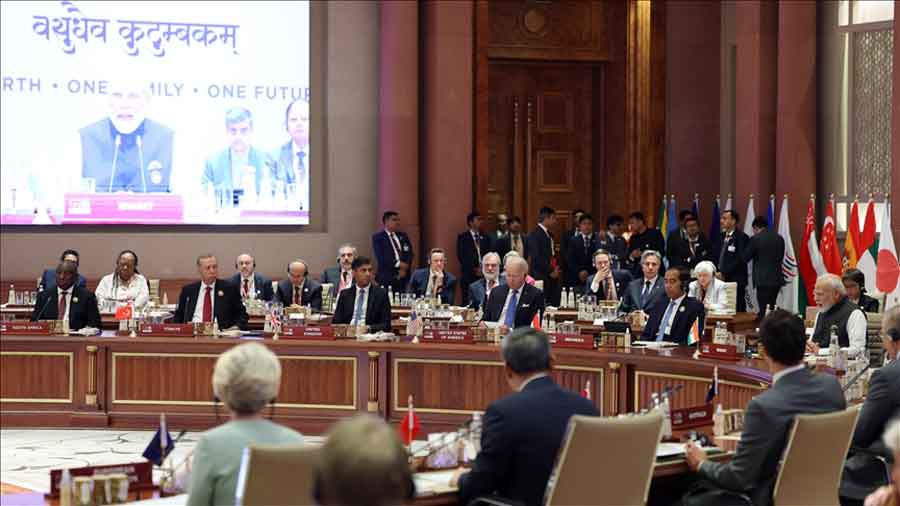How G20 Benefits Startups?
Introduction: Trailing the United States and China, India has the globe’s third largest entrepreneurial economy. This startup environment has an opportunity to add 4-5% to the country’s GDP. India launched the first Startup20 participation committee under its G20 leadership.
Also Read:
- Electric Vehicles –An Opportunity for Future
- India’s Look East policy
- A New Sports Era for India
- Promoting Tourism in India
- Youth & National Integration
- Top Tourist Destinations in India
Table of Contents
India’s Startup Environment:

The substantial amount of knowledge and access to the internet among Indian kids at this point in life could promote the development of novel abilities by encouraging innovative thinking and enterprising willingness to take risks. As a consequence of these activities, young people have received a renewed feeling of trust that comes from pursuing their business dreams.
Agreement on a Unified Definition for Startups:
In accordance with Indian authorities, the G20 countries are on track to establish an agreement on a uniform definition for startups by 2023.This substantial advancement has the ability to address critical challenges such as startup value and finance while also supporting efficient policy-making between member countries.
G20 countries hope to simplify regulations, attract expenditures, and establish a favorable climate for the creation of agile business by establishing a shared view of what defines a startup. The planned agreement on a single definition represents an intentional attempt by G20 governments to tackle the problems encountered by startups and maximizing the ability of them to drive socioeconomic development and technological advancement.
Startup20:
India, as the G20 Presidency, is so committed to bringing its startup programme to the rest of the globe that it has established an entirely separate project called “Startup20.” Startup20 is an essential programme that promotes innovation and entrepreneurial activity during the G20 Presidency.
It additionally emphasizes that startup20 will not only be an opportunity to foster collaborations but will also promote a mindset of partnership that develops the capacities of nations that are member startups, supply methods for gaining capital, boost job prospects, establish consisting and secure societies, and proceed closer to reaching the SDGs as well as an environmental friendly response to combating climate change.
Startup20 as a Worldwide Hub:
Startup20 will have an essential part in solving international startup challenges. Startups, for example, might encounter regulatory impediments as well as difficulties as they enter a fresh market, such as regulations and business practices.
Startup20 can act as a worldwide hub for premier startups and governments to collaborate and share information. The young people of India are an excellent benefit to the country. As the world experiences deep transformations marked by altering relationships and advances in technology, the nation’s youth demographic is going to contribute to the country’s desire for global prominence.
Three Areas of Startup20:
Startup India was recommended by the Indian government in order to expand the number of young entrepreneurs. It concentrates on three areas: simplicity and assistance, startup finance, and cooperation between academia and industry.
It helps fresh graduates launch creative endeavors that meet a societal need. Startups in India has helped the nation’s progress and confirmed the Government of India’s dedication to realizing the ‘Make in India’ ambition by establishing a centre for design, innovation, and entrepreneurship.
Digital Change:
The G20 must take steps towards delivering digital change to every individual on the earth over the next ten years, so that no one is left behind. Encouraging MSMEs and entrepreneurs in the age of digital media, as well as capturing the advantages of digitization and new technology, have been consistent aims. According to a study, even customers who were reluctant about buying online or doing business with a digitized organization have modified their opinions in the aftermath of the current pandemic. Digital transformation seems to be the sole means to prosper in an age of no-touch and safe-distance.
The software and data industries accounted for the greatest proportion of startups (31.95%), subsequently followed by the medical industry (12.83%) and the financial technology industry (10.43%). Every member nation has its own legislation designed to promote startup growth, such as startup visas, investments from venture capitalists, and advances in technology.
Startup Environment:
Although each nation continues to develop its startup environment, countries such as Russia, Turkey, South Africa, Saudi Arabia, and Brazil remain working to broaden their rules and regulations so that their businesses may have a wider global influence. Other members, such as Argentina, Canada, and Germany, are on the edge of boosting their startup expansion, but they confront the problem of discovering extra financial options to maintain companies in an environment of international political turmoil.
Sector-specific Goals of G20 Nations:
According to the participation of the G20 nations in terms of sector-specific goals, China, Argentina, Russia, and South Africa have a particular emphasis on fostering startups in the edtech business, whilst countries such as the United Kingdom and Brazil emphasise the fintech sector.
Surprisingly, Australia, Germany, Italy, and the European Union place a premium on the expansion of both the energy and environmental areas. Japan, South Korea, and, to a lesser extent, Australia are famous for their policy environments that place a premium on online and industrial developments. Mexico, the United States, and Italy are placing a stronger emphasis on the ecommerce and retailing industries.
Unique Localization:
Regulators and policymakers frequently hamper the expansion of Indian companies. India’s staging of the G20 Summit enables it to put these topics to the front in international debate. By describing the particular problems that its startups confront, India can gain assistance as well as knowledge from other members and possibly affect governmental changes that promote innovation and entrepreneurship.
This link is supported by empirical findings. In light of this, it is proposed that global sustainable agendas be matched with the development of the economy. Although working towards the SDGs, every country may implement a unique localization. For example, the Indian city of Bhopal has become known as a model for overcoming the difficulty of SDG accomplishment by using the Volunteering Local Review (VLR) strategy. This is a single instance that nations everywhere can use to help them achieve the SDGs.
Conclusion: India, as a G20 member, took the first move towards creating an integrated and unified startup community by launching the Startup20 interaction organization this year (2023). Such convergence initiatives can assist countries in realizing the complete potential of their startup industries and creating equal opportunities for companies across the G20.














































